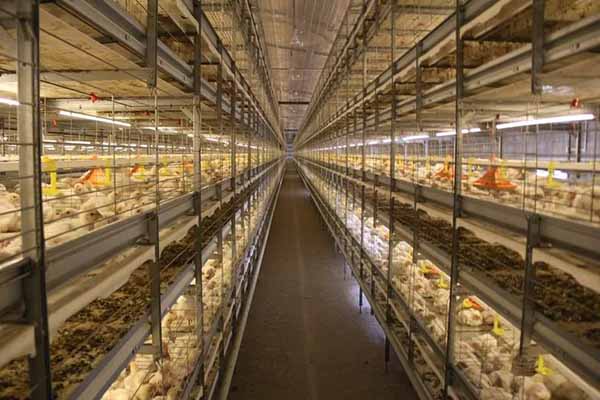What’s the Ideal Humidity in Cage Houses for Poultry Farming?
Understanding the Importance of Humidity Control
Maintaining the right humidity level in cage houses is crucial for the health and productivity of poultry. The ideal humidity in cage houses can vary depending on the species of poultry, climate, and other factors. This article delves into the significance of humidity control and provides guidelines for the ideal humidity levels in cage houses.
Why Humidity Matters
Humidity plays a vital role in poultry farming as it affects various aspects of the birds’ health and well-being. Here are some key reasons why humidity control is essential:
- Prevents Disease: High humidity levels can create a breeding ground for bacteria and viruses, leading to respiratory infections and other diseases in poultry.
- Regulates Body Temperature: Proper humidity helps regulate the body temperature of poultry, reducing the risk of heat stress.
- Improves Egg Production: Humidity levels directly impact egg production. Optimal humidity can lead to higher egg yields and better-quality eggs.
- Enhances Growth Rate: Adequate humidity supports the growth and development of poultry, resulting in faster weight gain.
Ideal Humidity Levels
The ideal humidity in cage houses varies depending on the species of poultry. Here are some general guidelines:
- Chickens: 50-60% humidity
- Turkeys: 40-50% humidity
- Ducks and Geese: 45-55% humidity
It is important to note that these values can be adjusted based on the specific climate and other factors.
Monitoring and Maintaining Humidity
To ensure the ideal humidity levels in your cage houses, consider the following tips:
- Use Humidity Meters: Regularly monitor humidity levels using reliable humidity meters to make adjustments as needed.
- Control Airflow: Proper ventilation can help maintain optimal humidity levels. Ensure that air is flowing evenly throughout the cage houses.
- Manage Water Sources: Keep water sources clean and well-maintained to prevent excessive moisture buildup.
- Use Desiccants: In areas with high humidity, consider using desiccants to absorb excess moisture.
Conclusion
Maintaining the ideal humidity in cage houses is essential for the health, productivity, and overall success of your poultry farming operation. By following these guidelines and monitoring humidity levels regularly, you can create a favorable environment for your birds.
For more information on humidity control and other aspects of poultry farming, please feel free to leave a comment below. We would be happy to provide you with a free chicken farm design plan and equipment quotation from LIVI Machinery.





